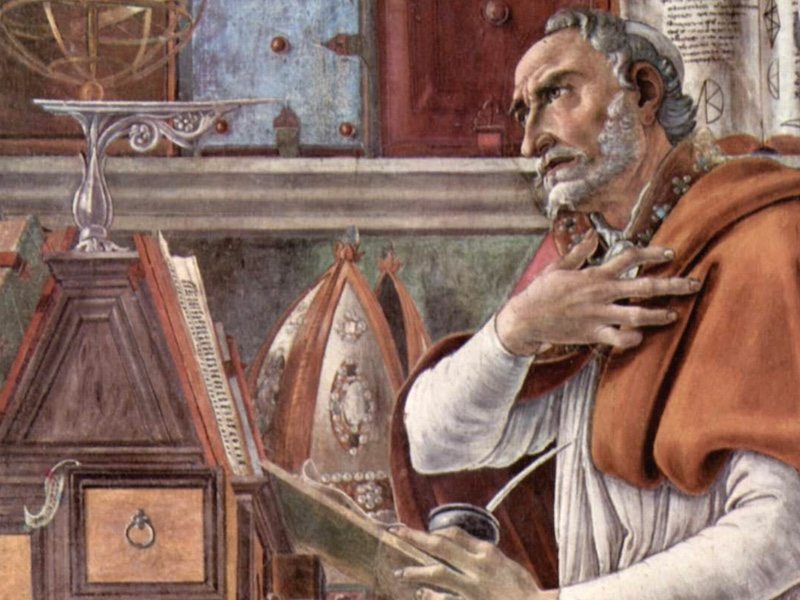Philosophy of Augustine of Hippo
St. Augustine of Hippo was a 4th-century scholar who converted to Christianity in his adult life and became one of the foremost Christian thinkers, laying foundations for much of Christian thought throughout the Middle Ages. St. Augustine was one of the first theologians to explain the concept of original sin, and his teachings on faith and divine grace continue to remain influential to Christian scholars today. His seminal work City of God was one of the main inspirations for much of Christian thought, and the accounts of his life in Confessions are often considered one of the first autobiographies.
St. Augustine believed in a hierarchy of existence, where some things merely exist, some exist and live, and others exist, live, and have reason. Because of this orderly structure in the universe, one of the distinguishing characteristics of humanity is the soul, which is separate from and higher on the hierarchical structure than the human body. He believed that the story of creation in Genesis was a metaphorical rather than a literal recount of the time and order of events, and he argued that the second coming of Christ would be a spiritual ruling rather than a literal one.
While others argued that the church was holy if its members were holy, Augustine saw the holiness of a church as God-given and argued that only those who were truly holy in God’s eyes would gain the righteous power of the church. Therefore, according to Augustine, because the church is ruled by the love of God, the men who are chosen to work for it prove themselves as righteous men. This led to a concept of the “divine rights” of kings and clergymen, which would continue as the center of debate for nearly 1500 years.
Expand your knowledge universe in just 5 minutes a day via bite-sized email courses.
Share with friends:

